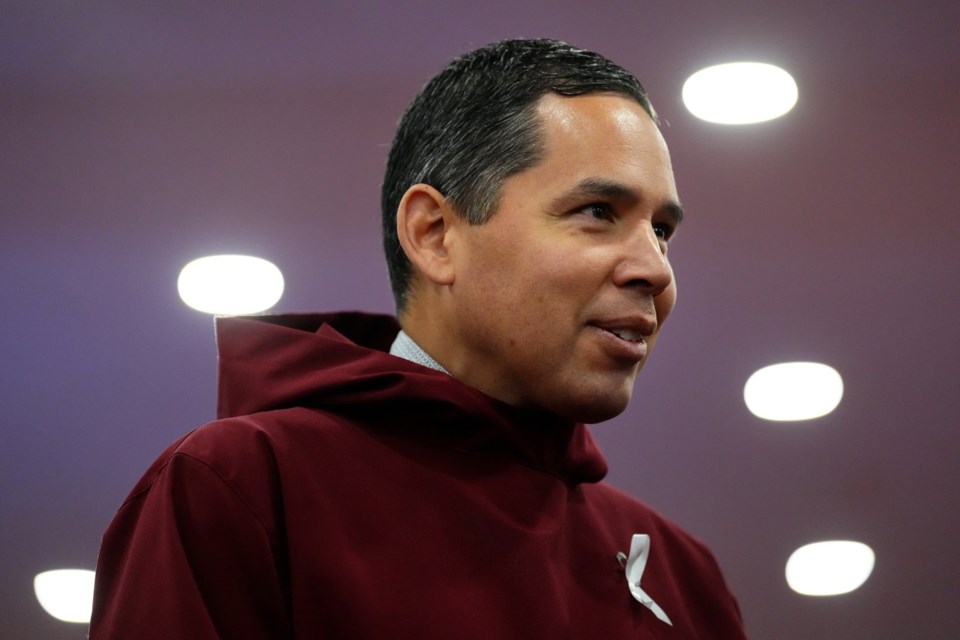OTTAWA — The president of Inuit Tapiriit Kanatami says "Canada's weakness" is publicly saying reconciliation with Indigenous Peoples is of top priority then acting like it isn't when it introduces legislation like the major projects bill.
The legislation is being widely criticized by Indigenous leaders and community members across the country for a lack of consultation and a tight timeline in which the government wants to pass the bill.
Bill C-5 would give the federal cabinet the ability to set aside various statutes to push forward approvals for a small number of major industrial products, such as mines, pipelines and ports.
ITK President Natan Obed, speaking to the Senate on Monday, said the way Canada operates is by positioning itself as a champion for the rights of Indigenous Peoples, but "acting very differently through its legislation and through its practice."
"I think of those things as being born not only out of ignorance, but out of a clear decision on whose rights matter and whose don't, and how to get to an end goal that makes Canada feel good about itself while still trampling on the very rights that it says it upholds," he said.
Obed was one of three Indigenous leaders speaking in the Senate chamber Monday who all said their rights were not properly considered in the legislation, and while they are generally in support of shoring up the Canadian economy, the rights of Indigenous Peoples should not be sidelined to achieve that goal.
Obed, Assembly of First Nations National Chief Cindy Woodhouse Nepinak and Manitoba Métis Federation President David Chartrand all want the government to allow more time for Indigenous groups to express their concerns.
"Not only does (the legislation) not live up to Canada's obligation to respect rights, it creates the possibility of national interest projects ending up before the courts with litigation causing significant delays in the ability of the national interest projects to move forward. As such, the Building Canada Act may end up creating instability and ultimately undermine investor confidence," Obed said.
Chartrand told senators he'll support the legislation, saying Canada "should not take lightly the threat that is coming from the south," referring to the increasingly unsteady trading relationship with the United States under President Donald Trump.
"Trump has started an economic war with Canada to beat us and bring us down," Chartrand said.
"The Red River Métis will kneel for no one. We stand with you."
While optimistic about the potential of the legislation, Chartrand said he is worried Métis won't be fully included in the benefits it promises, and that Canada won't be a trustworthy partner.
That trust can be built, Chartrand said, if Prime Minister Mark Carney meets with Indigenous leaders and provides clear details about how his government intends to consult with them on choosing the major projects to fast-track.
Woodhouse Nepinak reiterated concerns she has been raising for weeks about the legislation and its potential impact on First Nations rights.
She said that while Canada is trying to protect itself from Trump, the solution isn't to introduce Trump-like legislation.
"We know how it feels to have Trump at our borders. Let's not do that and have Trump-like policies with each other. Let's take the time and do things properly," she said.
This report by The Canadian Press was first published June 16, 2025.
Alessia Passafiume, The Canadian Press



